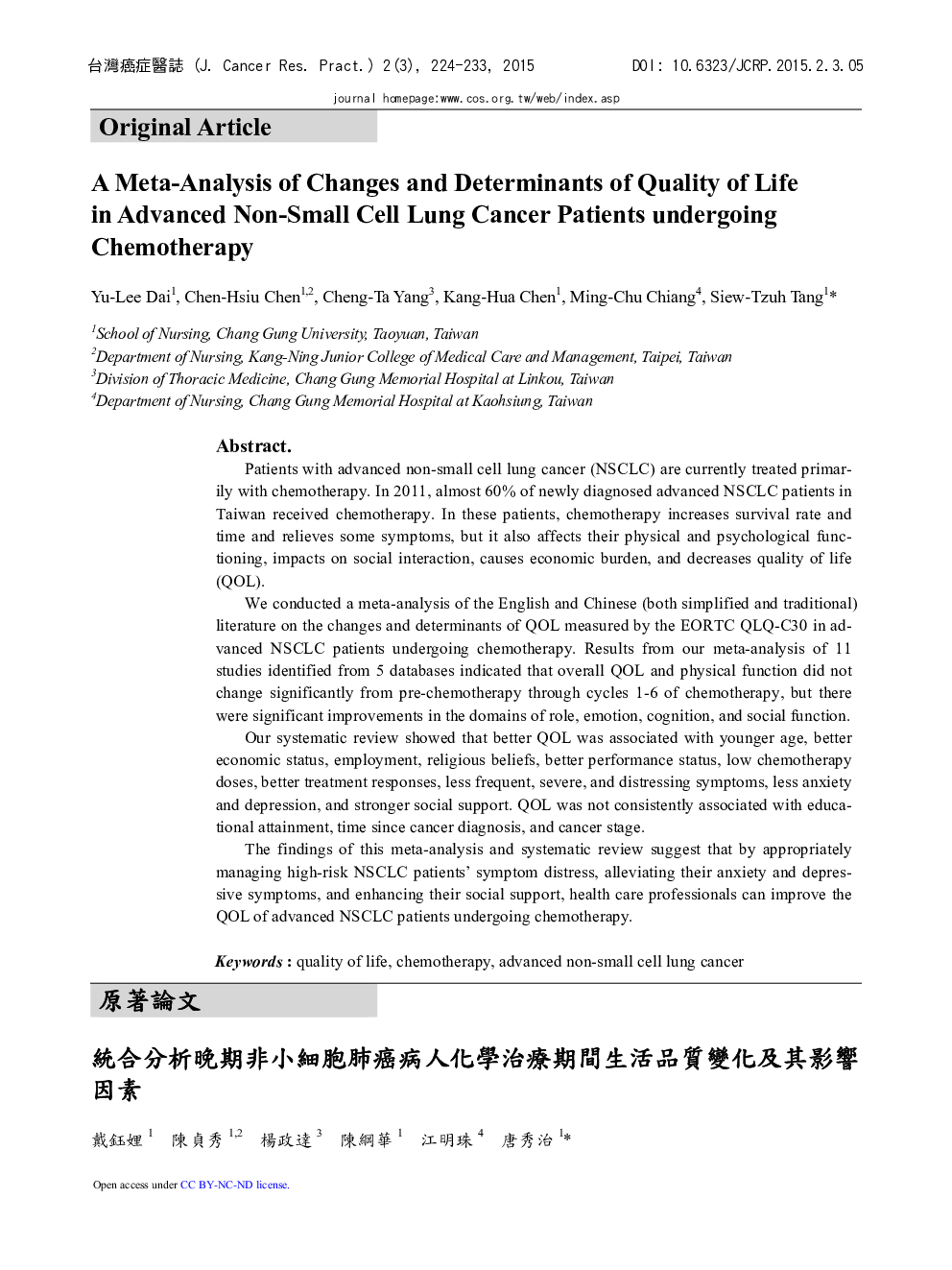| Article ID | Journal | Published Year | Pages | File Type |
|---|---|---|---|---|
| 3988840 | Journal of Cancer Research and Practice | 2015 | 10 Pages |
Patients with advanced non-small cell lung cancer (NSCLC) are currently treated primarily with chemotherapy. In 2011, almost 60% of newly diagnosed advanced NSCLC patients in Taiwan received chemotherapy. In these patients, chemotherapy increases survival rate and time and relieves some symptoms, but it also affects their physical and psychological functioning, impacts on social interaction, causes economic burden, and decreases quality of life (QOL).We conducted a meta-analysis of the English and Chinese (both simplified and traditional) literature on the changes and determinants of QOL measured by the EORTC QLQ-C30 in advanced NSCLC patients undergoing chemotherapy. Results from our meta-analysis of 11 studies identified from 5 databases indicated that overall QOL and physical function did not change significantly from pre-chemotherapy through cycles 1-6 of chemotherapy, but there were significant improvements in the domains of role, emotion, cognition, and social function.Our systematic review showed that better QOL was associated with younger age, better economic status, employment, religious beliefs, better performance status, low chemotherapy doses, better treatment responses, less frequent, severe, and distressing symptoms, less anxiety and depression, and stronger social support. QOL was not consistently associated with educational attainment, time since cancer diagnosis, and cancer stage.The findings of this meta-analysis and systematic review suggest that by appropriately managing high-risk NSCLC patients’ symptom distress, alleviating their anxiety and depressive symptoms, and enhancing their social support, health care professionals can improve the QOL of advanced NSCLC patients undergoing chemotherapy.
